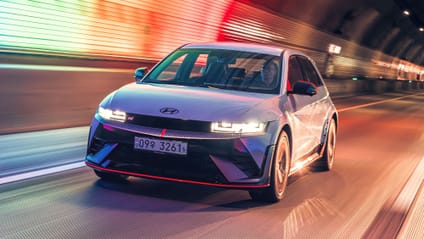Discover Australia's Finest
Explore the latest news, insights, and stories from down under.
Watt's the Fuss About Electric Cars?
Discover why electric cars are creating a buzz! Uncover the benefits, myths, and future of EVs in our insightful blog.
The Rise of Electric Cars: What You Need to Know
The rise of electric cars is reshaping the automotive industry, driven by advancements in technology and a growing awareness of environmental issues. As more consumers prioritize sustainability, the demand for electric vehicles (EVs) has surged. In fact, according to the International Energy Agency, the number of electric cars on the road globally surpassed 10 million in 2020, and that number is expected to double by 2025. This shift not only reflects changing consumer preferences but also a commitment from manufacturers to invest in greener alternatives. From Tesla's innovative designs to established automakers adopting electric models, the industry is witnessing a significant transformation.
In addition to environmental benefits, electric cars offer various advantages such as lower operating costs and reduced maintenance requirements. Understanding the charging infrastructure is crucial for potential EV buyers. A robust network of charging stations is essential for everyday use, and many governments are investing in expanding these facilities. If you're considering making the switch, be sure to explore resources like Electrek's EV Charging Guide for tips on charging stations and home setup. As technology improves, the future of transportation seems increasingly electric, promising efficiency and sustainability.

Are Electric Cars Worth the Investment? A Comprehensive Guide
As the world shifts towards more sustainable transportation options, many are asking, are electric cars worth the investment? Electric vehicles (EVs) offer several advantages, including lower operating costs and reduced environmental impact. For instance, according to the U.S. Department of Energy, electric cars can be 50% cheaper to fuel than their gasoline counterparts. Additionally, with advancements in battery technology, the range of electric cars continues to improve, making them more viable for everyday use. However, potential buyers must consider the initial purchase price, which can be higher than that of traditional vehicles, albeit often offset by tax incentives and lower long-term costs.
In evaluating whether electric cars are worth the investment, it's essential to consider factors such as maintenance costs and resale value. EVs typically require less maintenance due to fewer moving parts, which can lead to significant savings over time. According to Car and Driver, electric vehicles have lower maintenance costs compared to conventional cars. Furthermore, EVs are becoming increasingly popular, which may enhance their resale value in the future as consumer demand rises. In conclusion, while the initial cost may be a consideration, the long-term financial and environmental benefits make electric cars a worth-it investment for many consumers.
How Do Electric Cars Compare to Traditional Vehicles?
Electric cars and traditional vehicles each offer unique advantages and challenges, making it essential for consumers to understand the key differences between these two types of transportation. One of the most significant factors is the energy source; while traditional vehicles primarily rely on gasoline or diesel, electric vehicles (EVs) are powered by electricity, which can be generated from renewable sources. This transition to electric power not only reduces greenhouse gas emissions but also decreases dependence on fossil fuels, contributing to a more sustainable future. However, traditional vehicles may provide longer ranges and faster refueling times, which some consumers still consider crucial.
In terms of efficiency and operating costs, electric cars often outperform traditional vehicles. Studies show that EVs can convert over 60% of the electrical energy from the grid to power at the wheels, while conventional gasoline vehicles only convert about 20% of the energy stored in gasoline (EPA). Additionally, the lower cost of electricity compared to gasoline typically results in reduced fuel expenses for electric car owners. However, buyers should weigh factors like initial purchase price, charging infrastructure availability, and resale value when deciding between these two options. Ultimately, the choice may hinge on lifestyle and driving habits, making it important to consider all aspects of both types of vehicles.